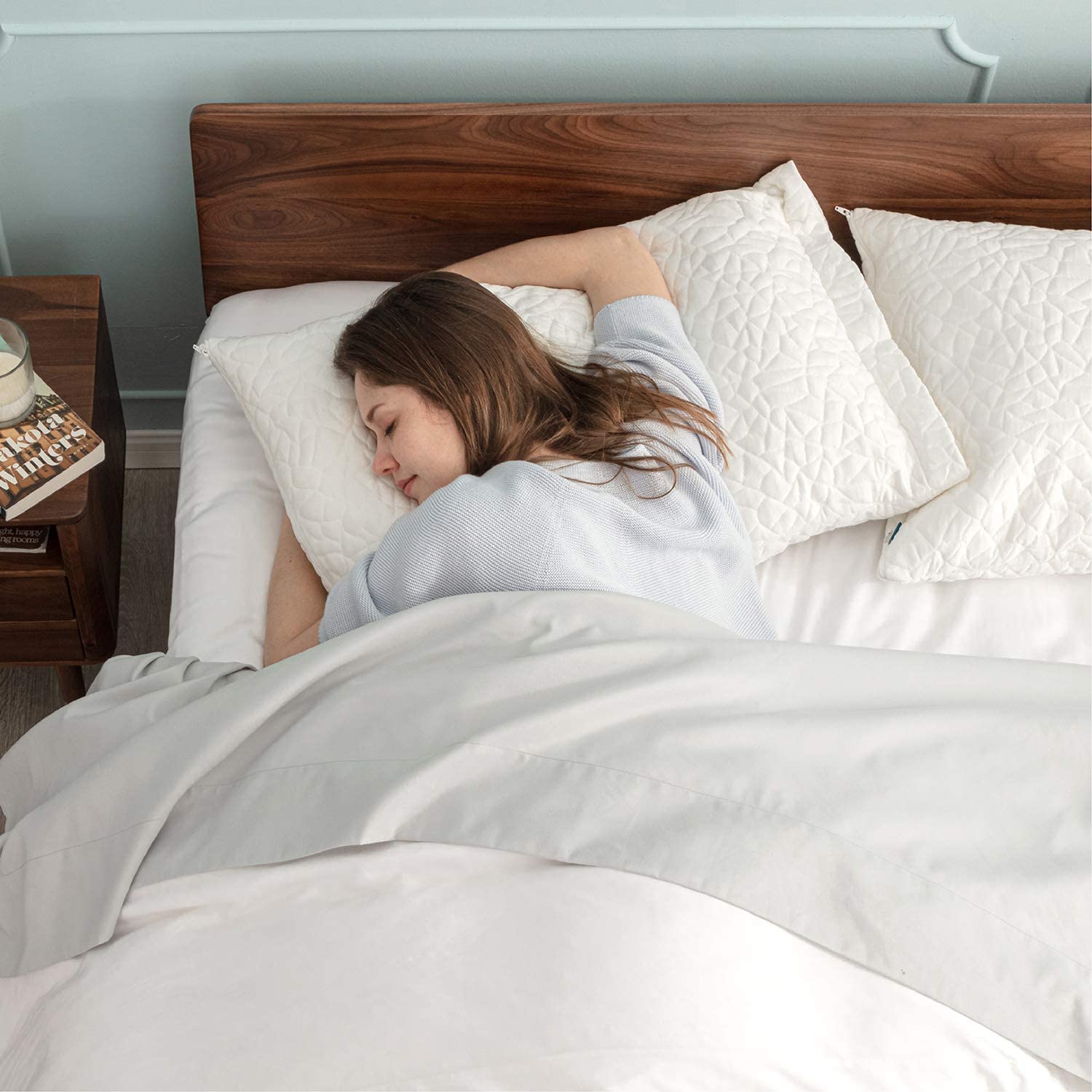The quality of your sleep can affect immunity and how well you feel the next day. When you get a good night’s sleep, your immune system is working to keep you safe from illness. Sleep also reduces stress levels which can help reduce inflammation in the body. But on the other hand, if inadequate sleep hygiene persists for weeks or months at a time, it may lead to health problems such as hypertension and diabetes.
How Does the Immune System Function?
The body’s immune system is a complicated network in which the cells work together to protect against illness. The immune system is mainly divided into two major categories: innate immunity and adaptive immunity. Innate immunity is an essential defense that provides multiple layers of protection. Adaptive immunity is the immune response to specific infections (such as flu or measles) that you develop over time and explicitly targeted by your body.
What Effect Does Sleep Have on the Immune System?
Sleep is essential to immune function. Getting enough high-quality sleep allows for a well-balanced immune defense with robust innate and adaptive immunity, an effective response to vaccinations, and less severe allergic responses.
Serious sleeping difficulties, such as insomnia, sleep apnea, and circadian rhythm disturbance, on the other hand, might impair the immune system’s ability to operate normally.
Sleep and Innate and Adaptive Immunity
Studies find that a lack of sleep can hinder the immune system, essential for keeping your body healthy and strong. The time you spend sleeping helps cleanse cells, increase cytokines (immune system signaling proteins), and promote T-cell development to be prepared for disease constantly. In the immune system, sleep contributes to both innate and adaptive immunity.
Studies have also shown that when we sleep, our immune systems are ramping up to ready for new challenges. For example, researchers have discovered an increase in cytokines that are associated with inflammation. This activity is driven both by sleep and circadian rhythm, which is the body’s 24-hour internal clock.
When someone is ill or injured, their immune system may react positively, helping them recover quickly and fortify natural and adaptive immunity.
According to studies, an inflammation process is triggered even when a person is not injured or sick. According to this study analysis, the nighttime immune activity strengthens adaptive immunity by 7.
Just as sleep helps the brain consolidate learning and memory8, it also strengthens immune memory. During sleep, the interaction of immune system components reinforces the immune system’s ability to recognize and react to dangerous antigens.
Experts are not sure of the exact reasons why sleep improves immunity, but several factors have been cited as possible contributors:
- During sleep, breathing is less rapid, and muscle activity slows down, freeing up energy for the immune system to function appropriately.
- During sleep, the body is much more vulnerable to the negative effects of inflammation. If this happened during waking hours, it could significantly negatively affect physical and mental performance. The body has evolved so that these processes only happen during sleep to prevent undue stress on the immune system.
- The hormone Melatonin, which promotes sleep and is produced at night, combats the inflammation caused by stress.
Sleep is an essential process that benefits the immune system, but one aspect of this process needs to be noted. As the body winds down for sleep, inflammation also begins to wane. In this way, high-quality sleep helps maintain the balance of immunity vital for both innate and adaptive immune functions.
What Effect Does the Immune System Have on Sleep?
Sleep helps a person’s immune system stay healthy, but the immune system can also help someone sleep better.
Sleepiness results from viral or bacterial infections triggering various responses from the human immune system, such as sickness. One of the reasons why sick people often spend more time in bed and sleeping is because lack of sleep affects immune response.
When an individual is infected, sleep changes in nature– it might spend more time in a certain sleep stage. The immune response induces increased time spent in stage three non-rapid eye movement sleep (NREM), known as deep sleep. Sleepers spend more time in deep sleep thanks to decreased brain and muscle activity. Immune cells use this increased energy to fight infections.
Fever is just another example of how the immune system can protect the body. When the body’s temperature increases from processed and boxed foods, it triggers a new wave of immune defense. It’s uncertain if sleep changes induced by infection are meant to facilitate fever and fight off the foreign pathogen.
Deep sleep (N3 stage) boosts our immunity because it’s the point in which we are sleeping when our metabolism is lowest, freeing up energy to build a strong fever response. Additionally, it is beneficial to shiver because it releases heat and maintains the fever. Our body cannot shiver in REM sleep due to muscle atonia; therefore, during an active infection, REM sleep is virtually abolished. Sleep during periods of fever can often be fragmented. This is called “fever dreams,” or increased nightmares, and happens between REM sleep fragments.
How both sleep and the immune system react to adversity are hotly contested by medical researchers.
Regarding sleep, research points to a correlation between inadequate rest and diminished natural defenses against infection.
How Can You Get More Sleep and Boost Your Immune System?
Making sleep a priority every night can strengthen your immune system and help protect you from a variety of health issues.
Improving the quality of sleep usually starts with focusing on your habits, routines, and sleeping environment. Collectively, these actions are known as sleep hygiene. Implementing straightforward steps, like having a consistent sleep schedule and avoiding using cell phones or tablets in bed, can make it easier to get a good night’s sleep.
If you have a chronic sleep problem or are dealing with an illness that keeps coming back, then it might be time to talk to your doctor. A doctor can identify underlying causes and best practices to address these conditions.
People with chronic insomnia should consult a doctor to find the best treatment methods. Treatment typically includes some form of sleep therapy or medication. As a result, this approach seemed to reduce negative thoughts about sleep and promote healthy sleep with reduced signs of inflammation.
Relaxation techniques, including mind-body methods like yoga or tai chi, have shown positive results in improving sleep and enhancing immune system function (including boosting vaccine response and decreasing indicators of systemic inflammation).






